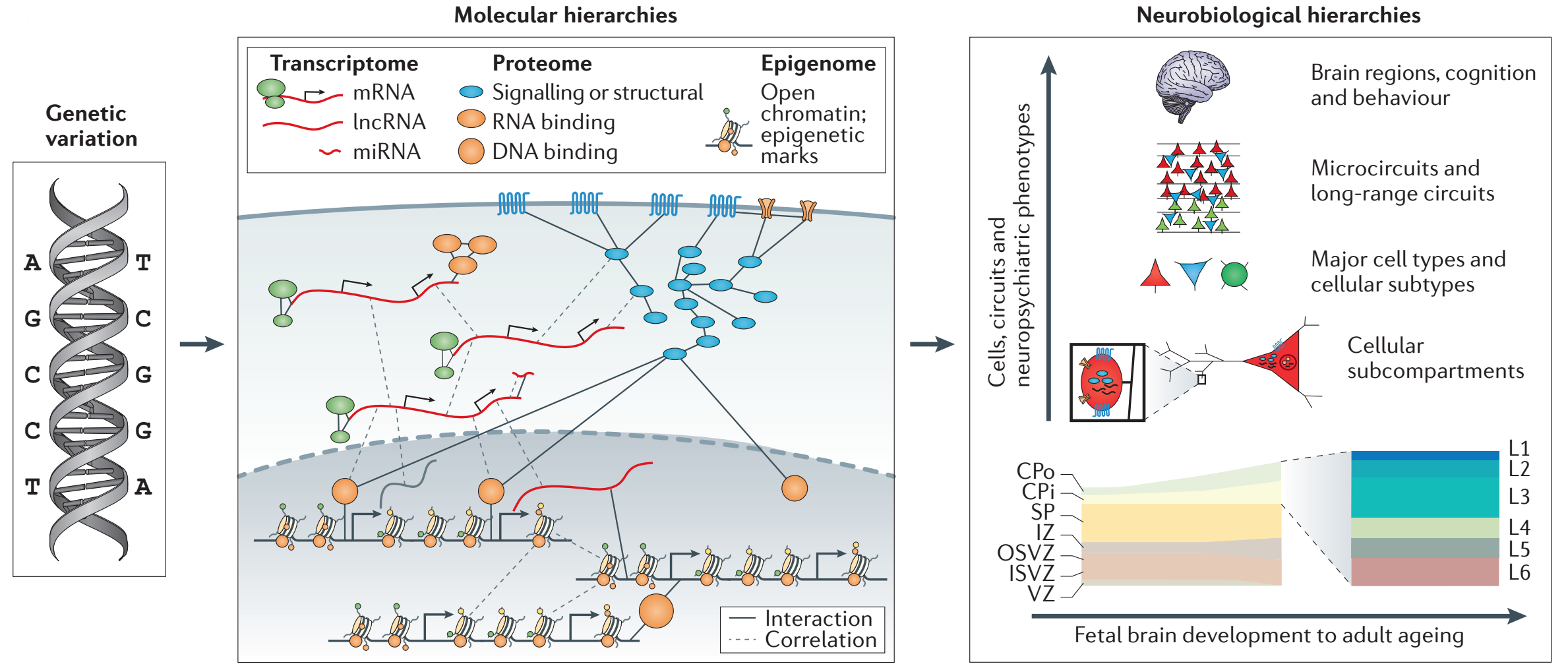The Geschwind Laboratory is dedicated to improving the understanding and treatment of neurodevelopmental and neurodegenerative conditions, focusing on autism spectrum disorders (ASD), dementia (frontotemporal dementia and progressive supranuclear palsy), and repair of the damaged nervous system. To accomplish this, we leverage the fields of genetics and genomics, coupled with basic neurobiology, to obtain a systems level understanding of disease. This process, which includes many stages (see below), begins with finding genes that increase risk for disease.

Consequences of genetic variation in the brain. Shown here is a schematic of the levels that link molecular (DNA variation and DNA modification through RNA and protein), to cellular and circuit (neurobiological) levels over early developing, maturation and aging. To understand how human genetic variation contributes to disease, scientists are faced with the task of measuring and understanding phenotypes in the central nervous system (CNS), a hierarchically organized complex system. By eventually connecting these levels we hope to understand how genetic variants that predispose to disease affect nervous system development and function and through this knowledge, accelerate development of effective therapies.
We gratefully acknowledge funding support from the NIH (NIMH, NIA, NINDS), the Adelson Medical Research Foundation (AMRF), the Tau Consortium, the Simons Foundation for Autism Research Inititative (SFARI), the Paul G. Allen Frontiers Group, the Friedrich's Ataxia Research Alliance (FARA), as well as the Gordon and Virginia MacDonald Distinguished Professorship.